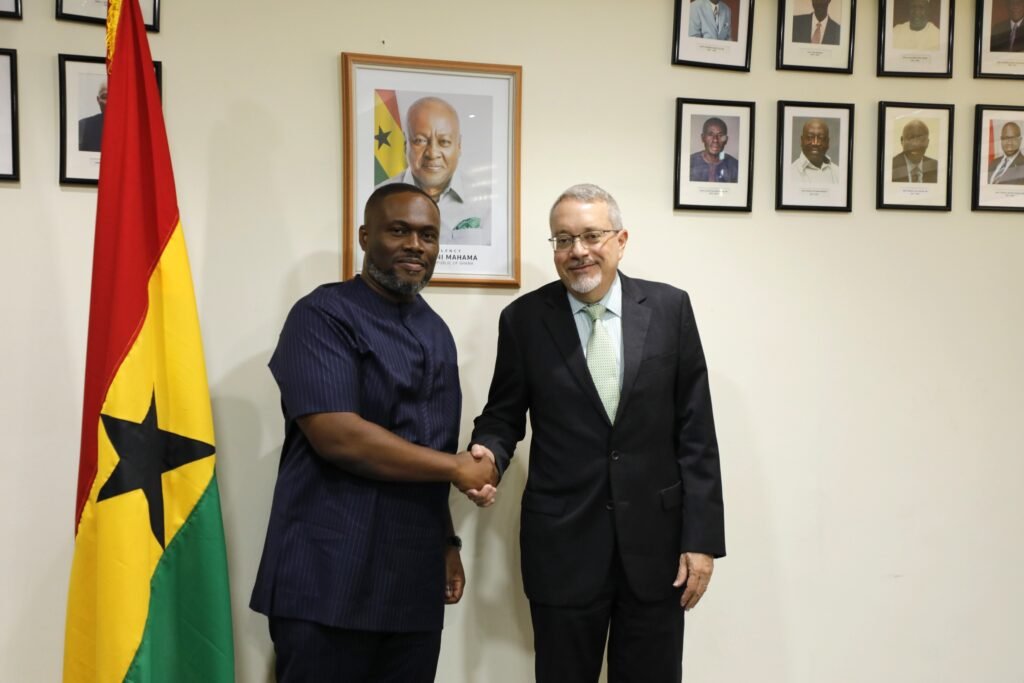
The World Bank has reiterated its commitment to the successful implementation of the Greater Accra Resilient and Integrated Development (GARID) Project. This assurance was given by the World Bank Country Director for Ghana, Liberia, and Sierra Leone, Mr. Robert Taliercio, during a courtesy visit to the Minister for Works and Housing, Hon. Kenneth Gilbert Adjei.
The visit, which included a delegation from the Bank, focused on reviewing the progress of the GARID Project and discussing its future direction as part of broader development efforts in the country.
Mr. Taliercio commended the Ministry for its dedication and steady progress in implementing the GARID Project, which aims to mitigate flooding and enhance urban resilience in the Greater Accra Metropolitan Area. “We are encouraged by the Ministry’s commitment and the tangible progress of the GARID Project,” Mr. Taliercio noted. “The World Bank stands ready to deepen our collaboration to ensure timely and sustainable results for the success of the project.” He also highlighted areas where implementation could be further accelerated to meet the overall objectives and timelines of the project.
Hon. Kenneth Gilbert Adjei expressed his appreciation for the World Bank’s ongoing support and emphasized the significant impact the GARID Project is already making in flood-prone communities. “The GARID Project is already changing lives in vulnerable communities, with the World Bank’s continued support, we are determined to overcome challenge,” the Minister stated.
He further proposed replicating the GARID model in Kumasi, Ghana’s second-largest city, to extend the benefits of resilient infrastructure to other urban areas. Mr. Taliercio welcomed the idea and assured that the World Bank would consider the proposal, reiterating the institution’s readiness to partner with the Ministry in scaling up urban resilience efforts nationwide.
The GARID Project continues to make strides in mitigating the impact of flooding and improving the quality of life for urban residents through strategic interventions in drainage systems, solid waste management, and community engagement.
